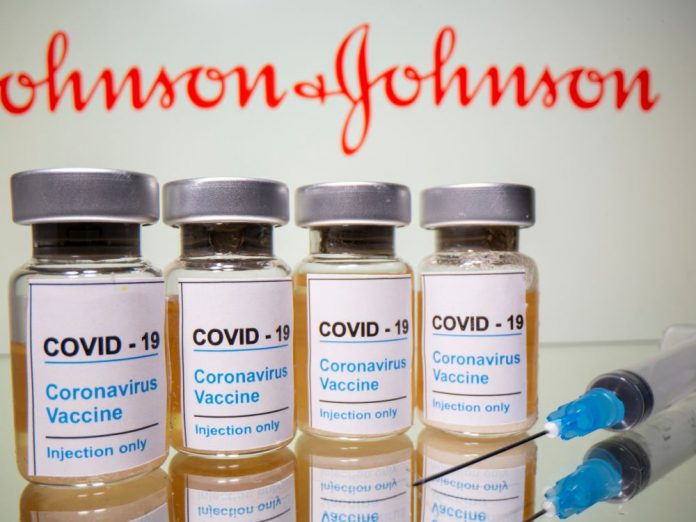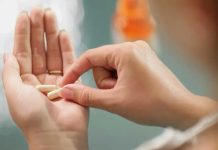Johnson & Johnson’s single-dose COVID-19 vaccine is less effective than currently authorized vaccines, new data shows, though it appears to be extremely effective against severe disease.
The J&J vaccine has been described as a “game-changer” in the campaign against the virus because it is a single dose regimen. The two authorized vaccines and other leading candidates call for double doses. It also does not need to be kept frozen, allowing it to be distributed through normal vaccine supply chains without the need for new, expensive equipment.
Those advantages come at some cost in terms of protecting against symptomatic COVID-19.
Results from a study of nearly 44,000 people suggest that J&J’s single dose will only be 66% effective – compared to more than 94% effective for Pfizer-BioNTech and Moderna’s double-dose vaccine.
The level of protection against moderate to severe COVID-19 infection was 72% in the United States, 66% in Latin America and 57% in South Africa, a month after vaccination, according to results from the company’s late-stage trial, released early Friday.
It was 85% effective against severe disease across all regions studied, the company said, and its effectiveness against severe disease increased over time with none of the vaccinated volunteers reporting severe disease more than 49 days after vaccination.
Once fully protected, there were no deaths in the vaccinated group and several among the placebo-recipients, though the company did not detail those cases.
Protection was generally consistent across race and age groups, including adults over 60, who were overrepresented in the trial. About 60% of trial participants were white.
In South Africa, nearly all cases were due to infection with a variant from the B.1.351 lineage. Although the company said the vaccine was generally protective there, too, the lower rates of protection might reflect this different variant.
Although the J&J vaccine may seem less desirable in some ways than vaccines with 94% effectiveness, it is protective where it counts – in preventing severe disease, hospitalizations and deaths, NIH Director Dr. Francis Collins and National Institute of Allergy and Infectious Diseases Director Dr. Anthony Fauci, both said on a morning news conference Friday.
“If you can prevent severe disease in a high percentage of individuals, that will alleviate so much of the human suffering and death,” Fauci said. “That’s the important issue.”
Both agreed the vaccine’s lower effectiveness would pose a messaging challenge that J&J’s vaccine is not inferior in these key metrics. “You’ve got to make sure people understand the implications we’re talking about today,” Fauci said.
By comparison, the seasonal flu vaccine ranges from an average high of about 60% effective to as low as about 20% depending on the year.
Side effects appear to be lower with this vaccine than the already approved ones.
J&J reported that 9% of participants spiked a fever after injection, but less than 1% had a high fever; others reported pain and fatigue, but all side effects were short-lived.
Overall, more people who received a placebo reported serious adverse events than those who received the active vaccine. No one suffered a severe allergic reaction, according to the company.
The safety results were “plain vanilla,” said Dr. Matt Hepburn, COVID-19 Response Vaccine Lead in the Biden administration. “We see nothing of note. No anaphylaxis. No imbalances between vaccine and placebo on any concerning safety at all.”
Collins added: “The safety record is extremely good for this vaccine as for the others that have received emergency use authorization.”
Both Pfizer-BioNTech and Moderna’s vaccines were authorized for use late last year and at least one shot of each has now been given to more than 24 million Americans.
AstraZeneca, which has another candidate COVID-19 vaccine being tested around the world, has been recommended for conditional authorization in the European Union for all adults. An AstraZeneca trial in the United States has been completed and is expected to report its results within the next few weeks.
J&J is expected to apply for emergency use authorization within the next week and receive it sometime next month.
Hepburn said vaccine should begin to be available immediately upon authorization.
A vaccine that can be given in just one dose and stored in a standard refrigerator would make a significant contribution to the fight against COVID-19, said Moncef Slaoui, who helped run Operation Warp Speed during the Trump administration and is now an advisor to the Biden administration.
“From a public health standpoint, if you get one shot and within a week or two from that shot you’re now vaccinated, and the vaccine can be stable at fridge temperatures, it’s so much easier (than current vaccines),” he said. “Look how difficult it is to vaccinate people. If you cut that by 50%, it’s transformational.”
J&J decided to pursue its single-dose approach at a time when the effectiveness of the other vaccines was not known and the U.S. Food and Drug Administration said it would approve any vaccine that was safe, appropriately manufactured and more than 50% effective.
Now, the public is unlikely to be happy a vaccine with less than 70% effectiveness, Slaoui said, but “anything in the 70s or 80s is very, very good.”
































